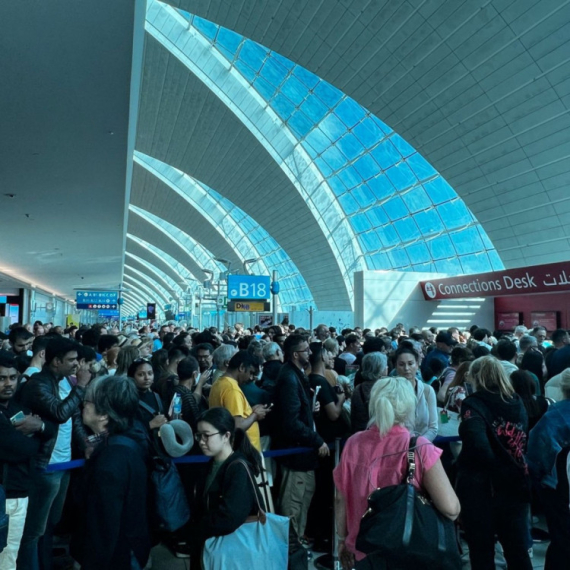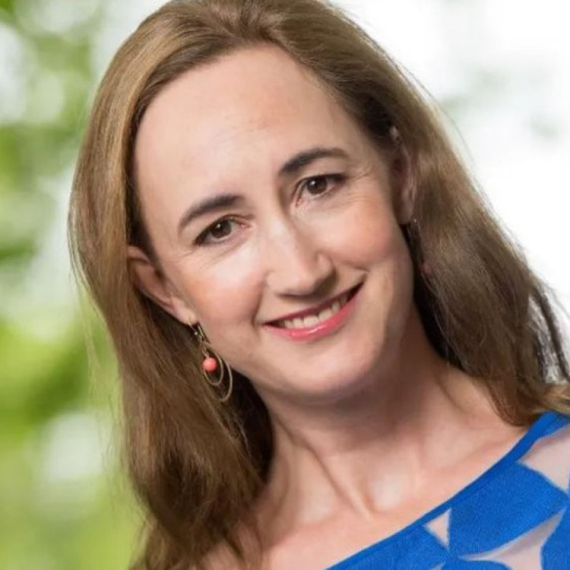"Kosovo issue won't be resolved based on Ahtisaari plan"
What was offered in Brussels was totally unacceptable and Serbia has said it that the Kosovo issue will not be resolved according to the Ahtisaari plan.
Monday, 25.03.2013.
15:01

BELGRADE What was offered in Brussels was totally unacceptable and Serbia has said it that the Kosovo issue will not be resolved according to the Ahtisaari plan. This was heard from Government Office for Kosovo Director Aleksandar Vulin, who was a guest on B92 TV's Impression of the Week talk show late on Sunday when he commented on the 7th round of the Kosovo dialogue that took place last week. "Kosovo issue won't be resolved based on Ahtisaari plan" "It was a letter of intent, those were not pleasant intentions, and nothing has happened with those intentions," Vulin said when asked about the content of a non-paper tabled, and rejected by the Serbian side, during the talks in Brussels. Vulin was then asked "what was written" in the document, and responded by saying - "nothing". "What was written was what we cannot accept. The idea is to implement the laws of Kosovo and for the Serbs do decide on nothing ... That the Serbs would have the right of representation with the Kosovo president in an advisory body," he said, adding that there was "no hidden secret plan". This official reiterated that Serbia cannot go below the demand of executive and legislative powers being given to the municipalities, as well as that their association should have control over the police and judiciary, and a right to make decisions related to spatial planning. He added that the last point was also a very important question - because it would "prevent the ability to change the ethnic structure" of settlements. In this context, Vulin mentioned Brdjani in Kosovska Mitrovica, where the settlement of 170 ethnic Albanian families who never lived there before had been announced. "If Belgrade is no longer issuing (construction) permits, then conflicts will arise, such as is the case in Brdjani where this already happened," Vulin warned. He further revealed that the negotiations were to be "completely abandoned" - but that Dacic was able to prevent this "based on the hope that we will be offered a better paper". Vulin thinks that, had the dialogue been "interrupted", Serbia would have been marked before the world as someone who sabotaged the negotiations. He said that the paper that appeared in Brussels as a proposal was not "suitable" for Serbia, and that it was then that they said the Kosovo problem "will not be solved under the Ahtisaari plan." Another message apparently sent by the Serbian side was that "there must be uniqueness, which will result from our constitutional law on substantial autonomy." "When we negotiate, we negotiate on the basis of resolutions of the National Assembly of Serbia, and we are moving within that framework," Vulin said, adding that the negotiations were difficult and that Serbia "was not in an an equal position" at the negotiating table. When asked if there would be an agreement on "good-neighborly relations", he said that was impossible, because such an agreement could not be signed with "someone you do not recognize". Faculty of Philosophy professor and former coordinator of the national team in the Vienna talks on Kosovo Leon Kojen also took part in the program, and said that Serbia had allies in the Kosovo negotiations then, and that these were Russia and China. The issue, he added, must be brought back under the wing of the international community and the UN. "It will be best for Serbia in the talks failed. These are negotiations during which Serbia has already been brought to its knees... The main thing is that Serbia has already given up its sovereignty in Kosovo. Serbia does not recognize its own institutions in Kosovo, calls them only 'parallel'. Kosovo Serbs have themselves adopted a declaration which explicitly rejects what the state is doing," said Kojen. But Vulin argued that the last point was not true - that the Serbs were yet to issue the declaration "if they are not satisfied with a solution reached in the dialogue". According to Vulin, the Kosovo issue "got complicated in 2008 when EULEX took over when the situation in Kosovo" He said that, when representatives of Serbia asked UN chief Ban Ki-moon for the world organization's powers in Kosovo to be reinstated, he responded by saying, "Yes - but you signed for EULEX to arrive". "Serbia is in Kosovo completing what NATO failed to do," charged Kojen, adding that the proposal presented in Brussels was "only a part of these things that Ahtisaari envisages in his plan". He said that it was a trick of EU mediators - because they put forward something that was below the minimum, and would then then offer what was proposed by Ahtisaari. Serbia must not accept it and let go of what it is still holding - the four municipalities, said Kojen. He believes that "our side treats Kosovo as an independent state and wants to achieve what Albanians have in Macedonia." Serbia's future is being decided on the issue of Kosovo, believes professor at the Faculty of Political Sciences Vladimir Pavicevic. He took part in the same talk show to say that he saw "two possible approaches to the problem that stands in front of Serbia": "The first is to reject what is written (in the paper), and if that were to happen, Serbia would essentially be isolated, that would be one way toward further impoverishment, self-isolation, it would be hell ... Another approach is to see if there is an understanding in our representatives of what the situation is like. We need to apply the approach that suits the actual state of affairs. And what is the actual situation? It is that Serbia is not ruling Kosovo, Kosovo does not rule the north ... Serbia now has no chance to influence politically, legally, especially not militarily what is happening in the north, unlike Kosovo, which has the mechanisms, but they are prevented from acting by international factors, precisely those who participate in the negotiations." He believes that Serbia should take the latter approach - agreeing "to go further, by an agreement that is defined by the Ahtisaari plan, and that's it." Pavicevic says Serbia must not cancel its European perspective. He says that currently the struggle is over Kosovo gaining "a seat in the UN" - and to "facilitate Serbia's European perspective." He said Serbia "can accept" Kosovo's UN seat. Vulin, on the other hand, said that the Kosovo issue "is not our burden on the European way - a bigger burden is that some countries do not want us to join the EU, and are finding an excuse in this matter." According to Pavicevic Serbia is experiencing "not Euro-skepticism, but anti-Europeanism". Vulin reacted by saying that Serbia wants a date for the start of EU talks, "but not at any price." When asked what the price was, he said: "It is what we did not accept (in the Brussels talks) - that's the price." He added that this "did not agree with the political careers Nikolic, Dacic, and Vucic - but that's what Serbia cannot go below". Vulin further stated that during his recent visit to Germany First Deputy PM Aleksandar Vucic left a meeting at the German parliament and said, "Well, if the terms are such, we do not need anything, thank you," and that then German parliamentarians "stopped him". Pavicevic expressed his doubt about this, noting that "these same lawmakers" came last week to Belgrade to present their conditions. As for the possible changes in the current cabinet, Aleksandar Vucic said on Sunday that there would be "no change of prime minister" - as this would "currently send a bad message", adding that a cabinet reshuffle would likely take place. When asked to comment on Dacic's statement that it was irresponsible for the media to wrtie about his dismissal, "while he was in Brussels, negotiating with Thaci", Pavicevic said that "this should not be happening". Speaking on the same Subject, Vulin said that Vucic "reacted immediately and the same night when he spoke to Dacic about the negotiations told him that he would not take over at the helm of the government, until he was elected to that position in elections". According to Vulin, Vucic also told Dacic that he had no objections to his work and that the prime minister had his support. Vulin agreed with Pavicevic that it would be irresponsible "to change the prime minister" in the course of the negotiations. On the other hand, Leon Kojen observed that "it must be noted that Prime Minister Dacic, at a time when his anti-constitutional campaign was getting stronger, remembered about national and state interests - but only when his own position was at stake." B92
"Kosovo issue won't be resolved based on Ahtisaari plan"
"It was a letter of intent, those were not pleasant intentions, and nothing has happened with those intentions," Vulin said when asked about the content of a non-paper tabled, and rejected by the Serbian side, during the talks in Brussels.Vulin was then asked "what was written" in the document, and responded by saying - "nothing".
"What was written was what we cannot accept. The idea is to implement the laws of Kosovo and for the Serbs do decide on nothing ... That the Serbs would have the right of representation with the Kosovo president in an advisory body," he said, adding that there was "no hidden secret plan".
This official reiterated that Serbia cannot go below the demand of executive and legislative powers being given to the municipalities, as well as that their association should have control over the police and judiciary, and a right to make decisions related to spatial planning.
He added that the last point was also a very important question - because it would "prevent the ability to change the ethnic structure" of settlements.
In this context, Vulin mentioned Brđani in Kosovska Mitrovica, where the settlement of 170 ethnic Albanian families who never lived there before had been announced. "If Belgrade is no longer issuing (construction) permits, then conflicts will arise, such as is the case in Brđani where this already happened," Vulin warned.
He further revealed that the negotiations were to be "completely abandoned" - but that Dačić was able to prevent this "based on the hope that we will be offered a better paper". Vulin thinks that, had the dialogue been "interrupted", Serbia would have been marked before the world as someone who sabotaged the negotiations.
He said that the paper that appeared in Brussels as a proposal was not "suitable" for Serbia, and that it was then that they said the Kosovo problem "will not be solved under the Ahtisaari plan." Another message apparently sent by the Serbian side was that "there must be uniqueness, which will result from our constitutional law on substantial autonomy."
"When we negotiate, we negotiate on the basis of resolutions of the National Assembly of Serbia, and we are moving within that framework," Vulin said, adding that the negotiations were difficult and that Serbia "was not in an an equal position" at the negotiating table.
When asked if there would be an agreement on "good-neighborly relations", he said that was impossible, because such an agreement could not be signed with "someone you do not recognize".
Faculty of Philosophy professor and former coordinator of the national team in the Vienna talks on Kosovo Leon Kojen also took part in the program, and said that Serbia had allies in the Kosovo negotiations then, and that these were Russia and China. The issue, he added, must be brought back under the wing of the international community and the UN.
"It will be best for Serbia in the talks failed. These are negotiations during which Serbia has already been brought to its knees... The main thing is that Serbia has already given up its sovereignty in Kosovo. Serbia does not recognize its own institutions in Kosovo, calls them only 'parallel'. Kosovo Serbs have themselves adopted a declaration which explicitly rejects what the state is doing," said Kojen.
But Vulin argued that the last point was not true - that the Serbs were yet to issue the declaration "if they are not satisfied with a solution reached in the dialogue".
According to Vulin, the Kosovo issue "got complicated in 2008 when EULEX took over when the situation in Kosovo" He said that, when representatives of Serbia asked UN chief Ban Ki-moon for the world organization's powers in Kosovo to be reinstated, he responded by saying, "Yes - but you signed for EULEX to arrive".
"Serbia is in Kosovo completing what NATO failed to do," charged Kojen, adding that the proposal presented in Brussels was "only a part of these things that Ahtisaari envisages in his plan". He said that it was a trick of EU mediators - because they put forward something that was below the minimum, and would then then offer what was proposed by Ahtisaari.
Serbia must not accept it and let go of what it is still holding - the four municipalities, said Kojen. He believes that "our side treats Kosovo as an independent state and wants to achieve what Albanians have in Macedonia."
Serbia's future is being decided on the issue of Kosovo, believes professor at the Faculty of Political Sciences Vladimir Pavićević. He took part in the same talk show to say that he saw "two possible approaches to the problem that stands in front of Serbia":
"The first is to reject what is written (in the paper), and if that were to happen, Serbia would essentially be isolated, that would be one way toward further impoverishment, self-isolation, it would be hell ... Another approach is to see if there is an understanding in our representatives of what the situation is like. We need to apply the approach that suits the actual state of affairs. And what is the actual situation? It is that Serbia is not ruling Kosovo, Kosovo does not rule the north ... Serbia now has no chance to influence politically, legally, especially not militarily what is happening in the north, unlike Kosovo, which has the mechanisms, but they are prevented from acting by international factors, precisely those who participate in the negotiations."
He believes that Serbia should take the latter approach - agreeing "to go further, by an agreement that is defined by the Ahtisaari plan, and that's it."
Pavićević says Serbia must not cancel its European perspective. He says that currently the struggle is over Kosovo gaining "a seat in the UN" - and to "facilitate Serbia's European perspective." He said Serbia "can accept" Kosovo's UN seat.
Vulin, on the other hand, said that the Kosovo issue "is not our burden on the European way - a bigger burden is that some countries do not want us to join the EU, and are finding an excuse in this matter."
According to Pavićević Serbia is experiencing "not Euro-skepticism, but anti-Europeanism".
Vulin reacted by saying that Serbia wants a date for the start of EU talks, "but not at any price." When asked what the price was, he said: "It is what we did not accept (in the Brussels talks) - that's the price." He added that this "did not agree with the political careers Nikolić, Dačić, and Vučić - but that's what Serbia cannot go below".
Vulin further stated that during his recent visit to Germany First Deputy PM Aleksandar Vučić left a meeting at the German parliament and said, "Well, if the terms are such, we do not need anything, thank you," and that then German parliamentarians "stopped him". Pavićević expressed his doubt about this, noting that "these same lawmakers" came last week to Belgrade to present their conditions.
As for the possible changes in the current cabinet, Aleksandar Vučić said on Sunday that there would be "no change of prime minister" - as this would "currently send a bad message", adding that a cabinet reshuffle would likely take place.
When asked to comment on Dačić's statement that it was irresponsible for the media to wrtie about his dismissal, "while he was in Brussels, negotiating with Thaci", Pavićević said that "this should not be happening".
Speaking on the same Subject, Vulin said that Vučić "reacted immediately and the same night when he spoke to Dačić about the negotiations told him that he would not take over at the helm of the government, until he was elected to that position in elections".
According to Vulin, Vučić also told Dačić that he had no objections to his work and that the prime minister had his support. Vulin agreed with Pavićević that it would be irresponsible "to change the prime minister" in the course of the negotiations.
On the other hand, Leon Kojen observed that "it must be noted that Prime Minister Dačić, at a time when his anti-constitutional campaign was getting stronger, remembered about national and state interests - but only when his own position was at stake."



























































Komentari 20
Pogledaj komentare